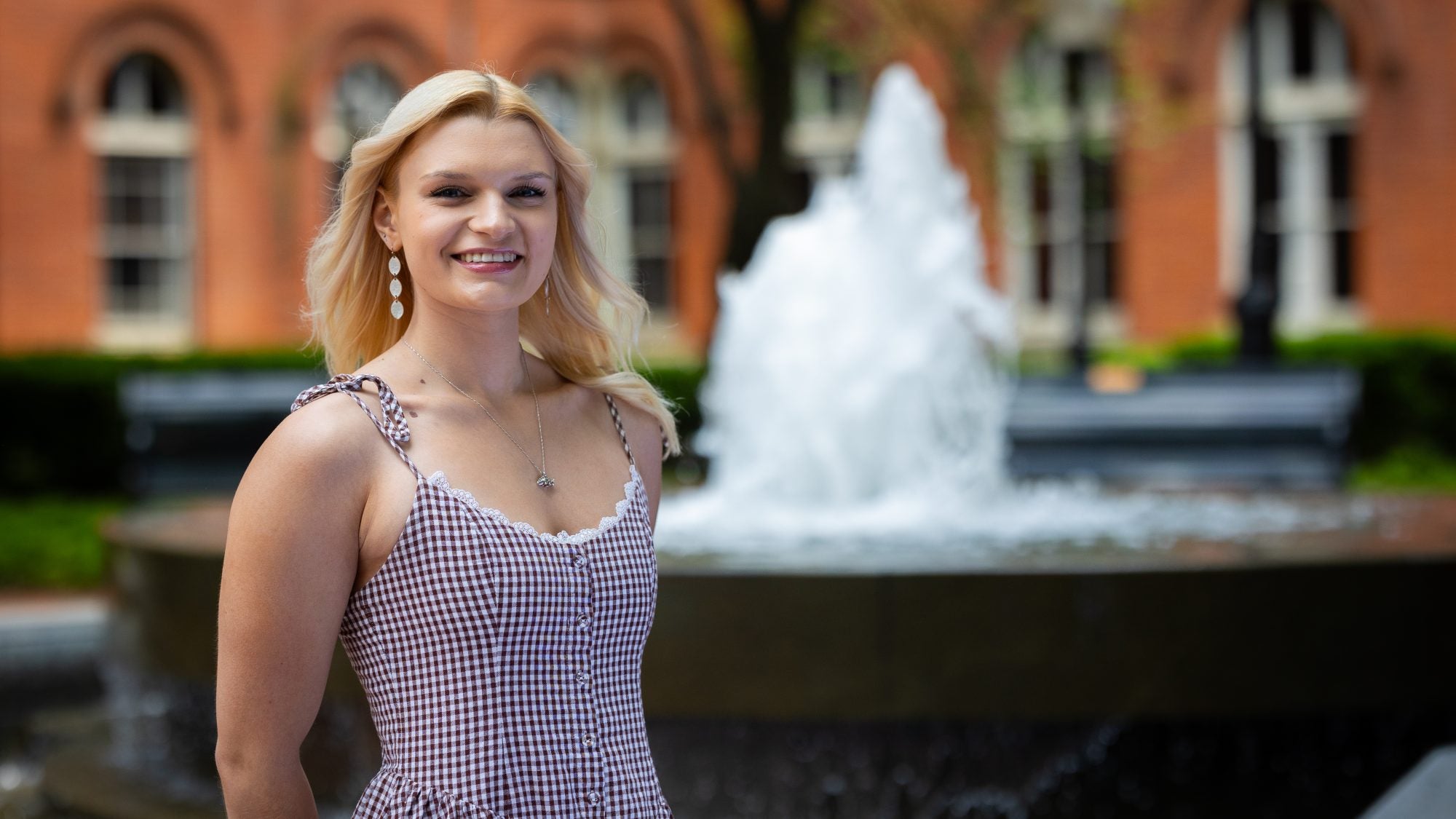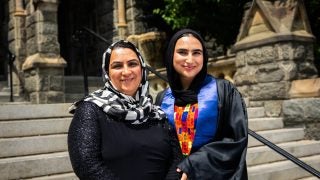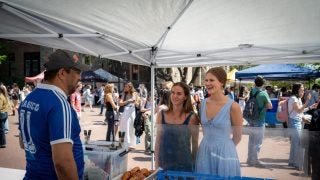Lisa Kennedy (C’25) grew up in the same house her father grew up in. Her grandfather was raised in a home just down the road. Today, nearly all of Kennedy’s extended family lives on that same road.
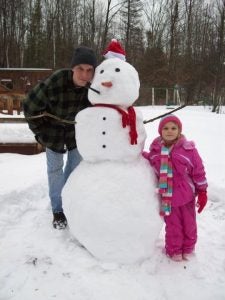
Kennedy is a fifth-generation resident of Rhinelander, a town in northern Wisconsin with a population of 8,000 people situated among the region’s countless lakes, streams and rivers.
Growing up, Kennedy was told that if she wanted to be successful in life, she had to leave her hometown and never come back, that there was no opportunity in rural communities like Rhinelander.
Her teachers encouraged her to think big for college. That meant Kennedy’s dream school, Georgetown, a place to pursue her passion in history and politics. But she knew Washington, DC, would be a stark transition from her life in rural Wisconsin.
“I couldn’t help but think of everyone I was leaving,” she said. “My teachers, who juggled multiple jobs so we could have both a history teacher and a hockey coach. My classmates, who went on to lead our local businesses and community organizations. My family, who taught me everything I knew.”
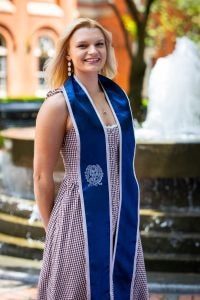
“Their lives were filled with an inherent value that I couldn’t seem to reconcile with the conception of rurality I’d been taught.”
Four years later, at the end of her Georgetown journey, Kennedy no longer believes Rhinelander is a place to leave behind. It’s a place that she wants to serve and see thrive. It’s her home.
“What was driving me to go to college was I wanted to advocate for people who have often gone overlooked. I felt like we had been overlooked, and that resulted in a lot of resentment,” she said. “I understand why people feel that way, but I think there’s real value in rural places and rural people. I wanted to change that narrative when I felt that change in myself when I came to college.”
The Rural Student Experience
Kennedy’s transition from rural Wisconsin to Washington, DC, had its challenges.
The daughter of a deliveryman and a facilities manager, Kennedy was a trailblazer for her family, the first to navigate the sometimes complex environment of higher education.
The Georgetown Scholars Program (GSP) gave Kennedy resources and a community to lean on as she adjusted.
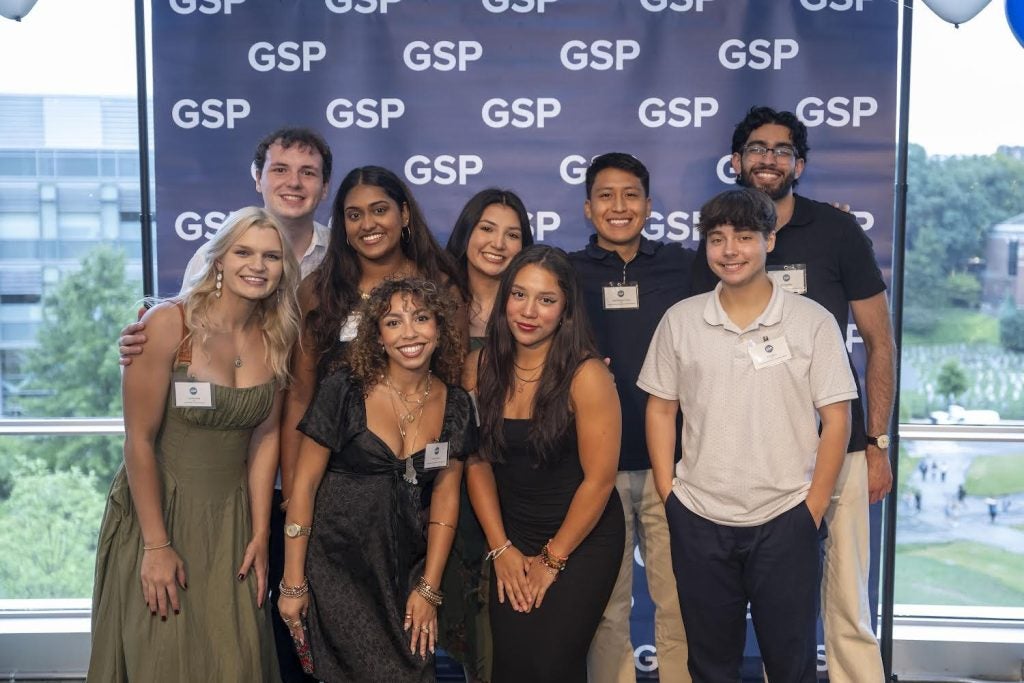
Her rural identity kept coming up in those first few months on campus, and Kennedy initially felt embarrassed talking about her rural, first-generation low-income background. Classmates and professors would ask her about Rhinelander and how it shaped her thinking. In these conversations, Kennedy recognized how her rural roots were a core part of her identity. She also noticed the misconceptions people can have about rural communities.
“It’s an invisible identity. Nobody can tell if you’re a first-generation low-income student just by looking at you,” she said. “It’s the same thing coming from a rural area.”
Kennedy wanted to change those misconceptions and advocate for rural students in higher education. Building on a project in her first-year Ignatius Seminar, she connected with the Office of Undergraduate Admissions and researched the college application process for rural students.
Comparing application files from rural and non-rural applicants, Kennedy discovered how rural applicants tend to have shorter letters of recommendation, which could be a barrier to admission, she said. Her research inspired her to form a community for rural students on campus, the Georgetown Association of Small Town and Rural Students (GU STARS).
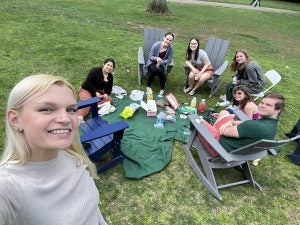
GU STARS hosts programming to build community and help rural students acclimate to life in DC. Every year, the club hosts the Art of Public Transportation, where students visit a DC museum using the city’s buses and rail systems. In an annual event, students create presentations on what they love about their hometowns.
“Lisa took her unique experience and used it to help more students from a similar background,” said Missy Foy, the executive director of GSP. “You can imagine how powerful it is to have a first-gen student talking at New Student Convocation about her background. I think that kind of testimony and mentorship helps younger students make the most of this opportunity and feel that they truly belong.”
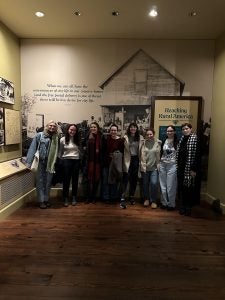
Though once embarrassed of her rural background, Kennedy now embraces her identity. In GU STARS, she encourages students to share that pride and tell people about their rural communities.
“Instead of saying I’m from Wisconsin, I’ll say I’m from Rhinelander, Wisconsin, which always provokes a question and draws attention to the fact that there are people from rural places at Georgetown,” she said. “It’s become a source of pride, and I think it’s important for students to not feel like the place they come from is being erased in the classroom.”
Building Thriving Rural Communities
When Kennedy started her advocacy for rural students, she wanted to open the door for more students to attend schools like Georgetown. Over her sophomore year, her thinking began to change.
In the summer of 2023, as part of the Laidlaw Undergraduate Leadership and Research Scholarship Programme, Kennedy interned with the Rural Schools Collaborative, where she developed a digital toolkit and resources for rural students and high school counselors.
The organization supports students from pre-K through college and other alternatives to a four-year degree, such as career technical education and other jobs in rural communities.
“That’s when everything shifted for me … from focusing solely on helping students get out and go to schools like Georgetown to helping students support their rural communities broadly,” she said.
Since her internship, Kennedy expanded her focus to study reforms that would support rural communities, such as policies that incentivize teachers to stay in rural communities, expand internet access and develop vocational education opportunities.
“Students should be able to go to college if they want to go, but they should also be able to feel like they can stay in their rural community and have a community that can support them in whatever they want to do,” she said.
An Education For Her Family
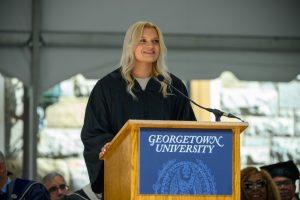
When Kennedy walks across the commencement stage, her achievement won’t just be her own. It will also be her family’s. Her family didn’t get this opportunity, but she’ll be able to share it with them, she said.
“I’m the first generation [to go to college], but I’m hoping to pass on this gift to future generations.”
Throughout her last four years, Kennedy has made her parents feel like they’re experiencing college for the first time, too. She called her parents almost every night to tell them about what she was learning. She read her papers out loud to them and has had lively discussions about her American studies thesis.
“It’ll be the culmination of so many years of hard work, but not just for me, but also for my parents, my grandparents, my grandparents before that,” she said. “There are so many people who will be behind me when I walk across that stage. It means a whole lot more than just me graduating. It’s for all of them, too.”
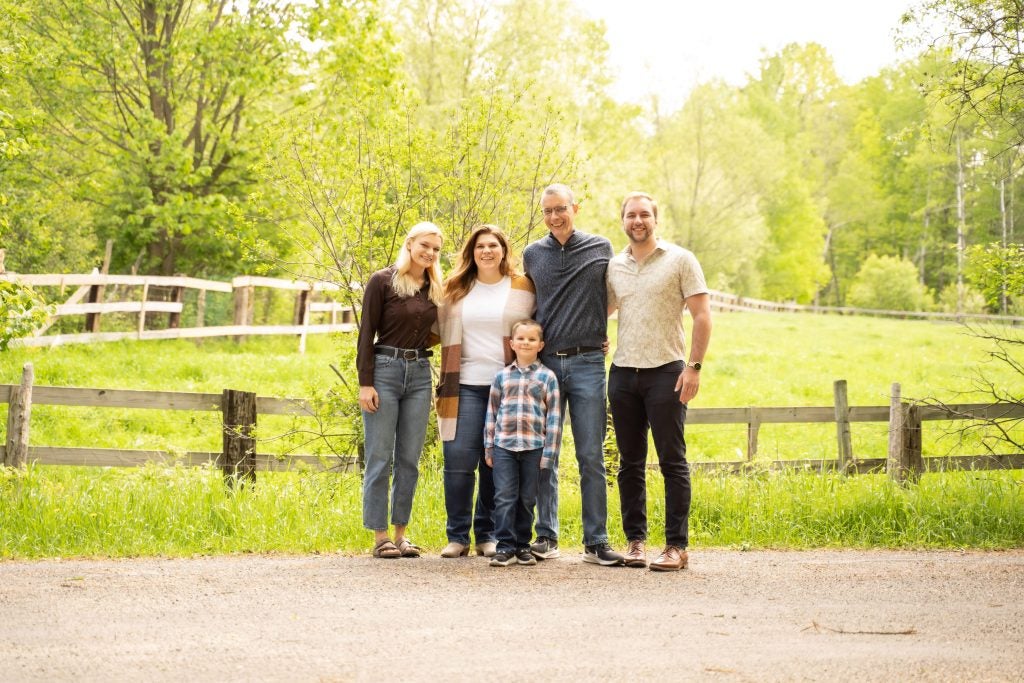
In the fall, Kennedy will start her master’s program in U.S. history at the University of Oxford as part of the Joseph L. Allbritton Scholarship. In the United Kingdom, she will study the history of the Crandon Mine Controversy in northern Wisconsin. She will also continue working with the Rural Schools Collaborative.
After Oxford, she hopes to return to rural America to continue to help rural communities thrive.
“I realized the failure of rural education lies in the collection of narratives and policies that made me feel like I had to leave,” Kennedy said. “I want to change this so that the millions of students living in rural America feel like their middle of nowhere is somewhere worth staying.”
